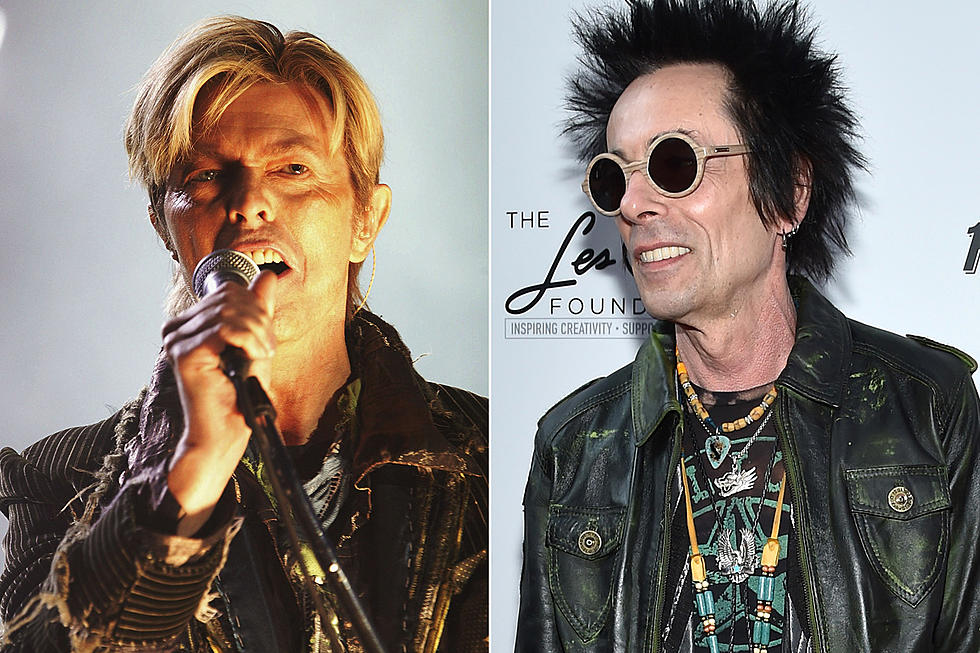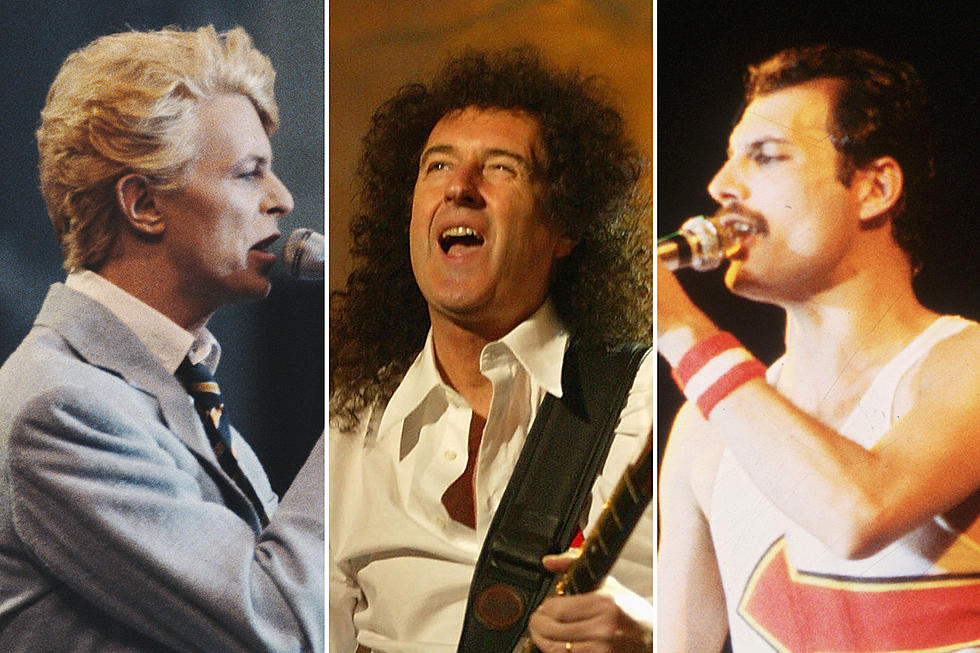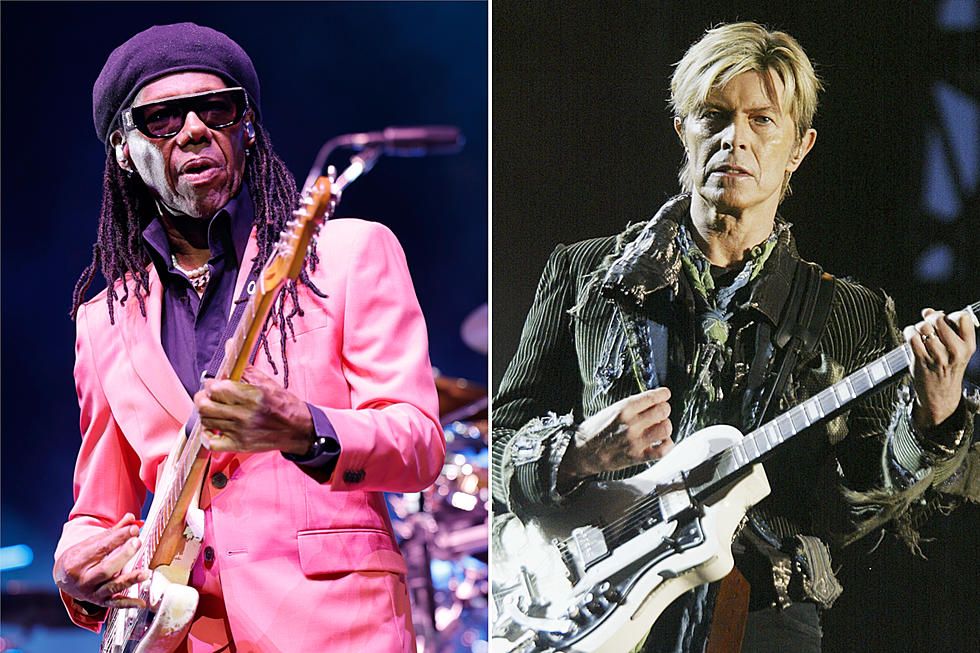
Earl Slick ‘Wasn’t a Bowie Fan’ When He Got Life-Changing Gig
Longtime David Bowie guitarist Earl Slick admitted that he wasn’t a fan of the British icon when he joined his band in 1974.
Their on-and-off collaboration would last until 2013. But in a recent interview with Classic Rock, the American artist – who’s poised to release a new instrumental album, Fist Full of Devils – said he only owned one Bowie LP before the “strange” audition that changed his life.
“I thought it would be Bowie with a band and I’d just go in and have a play,” Slick explained. “Which wasn’t the case. I had to go to RCA’s studios where they were at the final stages of mixing Diamond Dogs. David’s assistant walked me into the main recording room. The control room was blacked out and I couldn’t see anything but the lights on the gear. Then a voice came on the intercom – which I later figured out was (record producer) Tony Visconti – and said: ‘Put your headphones on. I’m gonna play some things, just play along.’ So I did, and that was it. After half an hour or so, Bowie walked in the room, said hello, and we chatted and noodled around on guitars for a little while.”
He continued: “It’s funny, because I wasn’t a Bowie fan. I knew who he was; I owned one of his albums, Aladdin Sane, which I’d bought for Mick Ronson’s guitar. ‘Jean Genie’ was right in that Chicago blues mode… ‘Panic In Detroit’ was completely Bo Diddley, and that’s why I bought the record. But it was the only Bowie record I had, so I went in pretty blind.”
Slick recalled that the subsequent years felt like “mini-Beatlemania” as he found himself in the world of a major-league musician. “And while I wasn’t doing anything I hadn’t done before, suddenly it was on a whole different level,” he added.
He further noted the amount of cocaine that was used during the making of Young Americans and Station to Station, singling out the latter LP for featuring “a lot of experimenting and silliness we probably wouldn’t have otherwise done.” “I’m not suggesting you do mountains of cocaine to make a really good record," the guitarist cautioned, "because it doesn’t normally work out very well, but for that particular record, bearing in mind we didn’t kill ourselves – which was good – it did.”
David Bowie Albums Ranked
More From Ultimate Classic Rock









